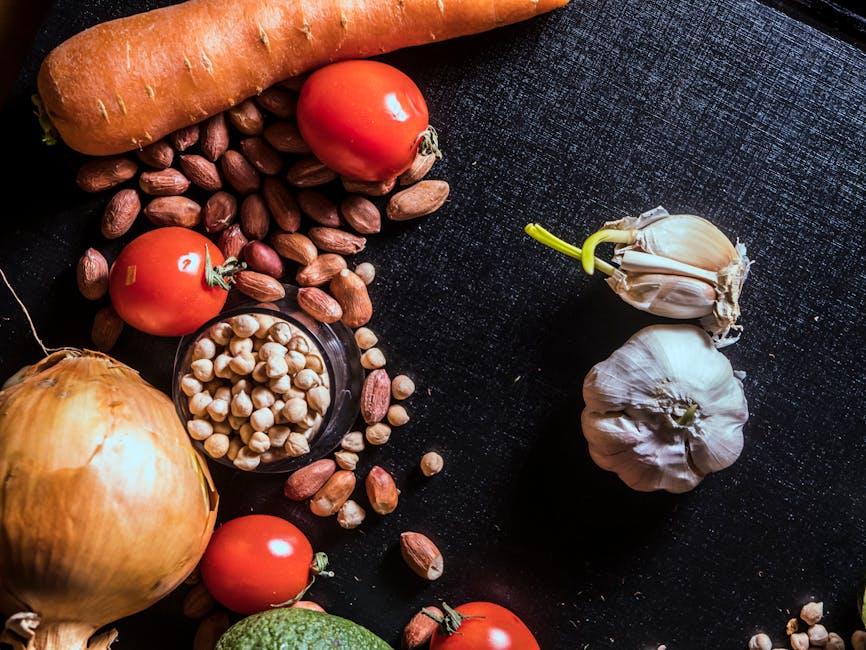Imagine a world where our furry companions frolic with boundless energy, their eyes gleaming with vitality. Just like us, pets thrive when their tummies are happy. But, how do we ensure their digestive systems are in tip-top shape? The secret lies in a well-curated diet tailored to their unique needs. In this article, we’ll embark on a journey to explore the art of nourishing our pets, unveiling simple yet effective dietary tips to prevent those pesky digestive issues. So, let’s dive in and discover how to keep our beloved friends wagging and purring with delight!
Understanding Your Pet’s Nutritional Needs
Every pet is unique, and understanding their specific dietary requirements is crucial for maintaining their overall health. A well-balanced diet tailored to your pet’s species, age, size, and activity level can help ward off digestive problems. Here are some key elements to consider:
- Protein: Ensure your pet receives high-quality protein from sources like chicken, fish, or lamb. This supports muscle development and energy levels.
- Fiber: A moderate amount of fiber aids digestion and prevents constipation. Look for ingredients like pumpkin or sweet potato in their diet.
- Hydration: Always provide fresh water. Wet food can also boost hydration, especially for pets prone to urinary issues.
- Portion Control: Overfeeding can lead to obesity and digestive stress. Follow recommended serving sizes based on your pet’s weight and lifestyle.
By focusing on these dietary components, you can nurture your pet’s digestive health and enhance their quality of life. A thoughtful approach to their nutrition is a profound act of love and care.

Choosing the Right Ingredients for Optimal Health
Ensuring your pet’s diet is rich in the right ingredients is crucial for maintaining their digestive health. High-quality proteins like chicken, turkey, or fish provide essential amino acids without overloading their digestive system. Look for whole, easily digestible grains such as rice or oats, which are gentle on the stomach and provide necessary fiber. Fiber is essential for promoting healthy digestion and can be found in ingredients like sweet potatoes and pumpkin.
Consider incorporating probiotics and prebiotics into their meals to support gut health. Probiotics introduce beneficial bacteria, while prebiotics nourish them. Ingredients like yogurt or specially formulated supplements can be a good source. Additionally, avoid fillers and artificial additives that can irritate the digestive tract. Opt for natural, wholesome ingredients to keep their tummies happy. Remember, a well-balanced diet tailored to your pet’s specific needs can make a world of difference in preventing digestive issues.

Portion Control and Feeding Schedules
Ensuring your pet receives the right amount of food at the right times can make a world of difference in their digestive health. Portion control is crucial; overfeeding can lead to obesity and related health issues, while underfeeding may cause malnutrition. Use the following guidelines to find the right balance:
- Consult your veterinarian to determine the ideal portion size based on your pet’s age, weight, and activity level.
- Consider using a measuring cup or a kitchen scale for accuracy.
- Adjust portions as needed to maintain a healthy weight.
Equally important is establishing a consistent feeding schedule. Regular meal times help regulate digestion and prevent stomach upset. Consider these tips:
- Feed your pet at the same times each day to create a routine.
- Divide their daily food intake into two or more meals to avoid overloading their digestive system.
- Provide a quiet, stress-free environment during feeding times.
By implementing these practices, you’ll support your pet’s digestive system and contribute to their overall well-being.

The Role of Hydration in Digestive Wellness
Ensuring your pet stays well-hydrated is a cornerstone of digestive health. Water plays a critical role in breaking down food, aiding in nutrient absorption, and keeping the digestive tract functioning smoothly. Without adequate hydration, your pet may experience constipation or other digestive discomforts. To keep their system in tip-top shape, consider these tips:
- Fresh Water Availability: Always provide clean and fresh water. Change it daily to encourage your pet to drink more.
- Moisture-Rich Foods: Incorporate wet food or add water to dry kibble to increase moisture intake.
- Hydration Enhancers: Use pet-safe broths or flavored water to entice pets that are reluctant to drink.
By prioritizing hydration, you not only support your pet’s digestive wellness but also contribute to their overall vitality and happiness.


































